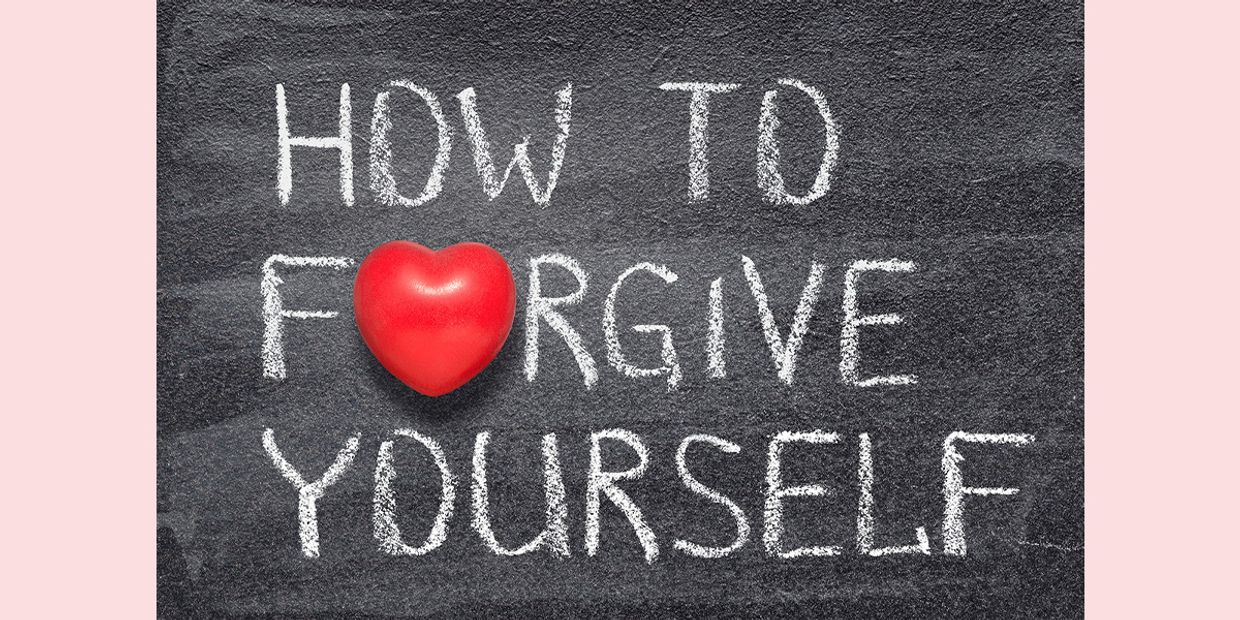
Receive Answers via SMS. Text Your Questions to:
Instantly message our featured psychics online via psychic messenger.
Click to start
Register now to start your reading online. PSYCHIC MESSENGER- Cheapest psychic service in Australia
- Our readers are available 24/7
- 100% confidential service
- In-depth, Personal readings
- Thousands of 5* reviews
Published 23/07/2024 by Olivia Woods
How to Forgive Yourself: A Guide to Self-Forgiveness
Forgiveness is essential to unladen the burden of guilt, negative feelings, shame, and self-blame that affect your mental and emotional health.
Trusted Psychics Australia, the professional psychics have put together this step-by-step manual to guide you in moving forward towards genuine self-forgiveness, liberating you from guilt and allowing you to move forward into emotional healing.
Forgiving oneself means realising how imperfect you are, assuming blame for what you did, and plotting a course of action with kindness and clarity.
If we feel resentment or self-criticism, we are rooted in the past and cannot experience life as we really are. Forgiving yourself doesn't mean apologising for past mistakes and errors of judgment; it's about acknowledging your mistakes, taking responsibility, and finding a kinder path for yourself.
By forgiving yourself, you are taking steps towards healing and coping with difficult and remorseful emotions. These emotions may have been an emotional burden affecting all aspects of your life and stunting your personal growth.
To forgive opens the way to growth and enlightenment. This easy-to-read guide by the Trusted Psychic experts explains the 4 R's of forgiveness, actions you can take, and the common pitfalls of forgiving yourself.
We'll also explore the transformative value of not being consumed by the cycle of guilt.

The 4 Rs of Self-Forgiveness ♡
✔️ Responsibility
Self-forgiveness starts by accepting the responsibility for your actions without blaming others. Being totally honest with yourself so you understand your feelings of guilt and the negative feelings you carry with you because of your behaviour towards others.
This process of gradual acceptance involves honesty, self-love, self-respect, and self-forgiveness.
✔️ Remorse
Being remorseful for your offensive behaviour may trigger unpleasant feelings of regret and shame.
However painful showing remorse and being disappointed in your actions is part of the self-forgiveness journey.
Self-forgiveness begins with a determination to release the overwhelming feelings you hold of guilt, shame and regrets whilst believing in yourself that you are not a bad person and that you just made bad mistakes that you are committed to not making the same bad judgments again.
✔️ Restoration
Restoration is the second step in the self-forgiveness process, and it's about righting the wrong. Whether personal or other, the healing process is crucial to moving forward.
Taking responsibility and apologising is the key to rebuilding damaged romantic relationships. Recognising the damage you've done shows a sense of responsibility and genuine compassion for others. Your intentions of restoring inner peace and self-worth can lead to a healthier, more compassionate relationship with yourself and others.
Fixing your relationship with yourself is no different from fixing relationships with others. When you attempt to repair your self-esteem, you maintain a state of inner stillness and compassion for yourself.
Reconciliation brings you better relationships with other people and a more loving relationship with yourself. This crucial step reinforces your capacity for creating good relationships through trust, kindness and understanding.
✔️ Release
Releasing the pain from past mistakes is an essential part of unburdening yourself of negative emotions. This crucial step is vital for genuine self-forgiveness so you can be freed from the cycle of guilt to help you rediscover your real values.
Releasing your pain and shame improves your emotional resilience, allowing you to become a happier and more productive person.
How to Forgive Yourself and Move On Step-by-Step
- Step 1: Understand Your Emotions
You need emotional intelligence to forgive yourself. Accept and identify your feelings: shame, regret, bitterness, or grief. These emotions are typical reactions to past deeds or mistakes.
By acknowledging and naming feelings, you may address them constructively and strive towards forgiveness with more confidence and self-love.
- Step 2: Take Responsibility
Responsibility is essential to self-forgiveness. Be honest about your behaviour without blaming others. Take responsibility to learn from your mistakes and show maturity and integrity.
Assuming responsibility for the circumstance leads to genuine growth and self-compassion, promoting healing rather than self-blame.
- Step 3: Be Kind to Yourself
Self-forgiveness requires self-compassion. This implies treating yourself with the same empathy as a friend facing similar challenges.
Avoid severe self-criticism and accept that every individual makes errors. Exercising self-forgiveness establishes a supportive environment for positive emotions and healing, enabling you to go forward without shame or bitterness.
- Step 4: Show Remorse
Demonstrating remorse is crucial for self-forgiveness, as it acknowledges the hurt it caused. Instead of concentrating on guilt, accept responsibility with sincerity.
Reflecting on regrets can help you understand your values and goals for growth. Showing guilt can lead to meaningful transformation and strengthen your determination to make more responsible decisions in the future.
- Step 5: Make Amends to Others and Yourself
Making amends helps heal and move forward. To repair harm, take genuine steps, such as apologising to others or addressing personal issues. If immediate improvements aren't possible, consider positively expressing your values through acts of kindness. Making apologies involves:
- Forgiving oneself.
- Understanding the efforts you made to evolve.
- Promising to gain insight from this experience.
- Step 6: Learn From the Experience
Mistakes become lessons when learnt from. Consider the cause of the issue and find tendencies or reactions to prevent them in the future. Apply these ideas to improve habits and responses, leading to a good life change.
Actively learning from challenging experiences can help you grow personally and make better decisions in the future.

- Step 7: Move On
Moving forward is the final stage in self-forgiveness. Concentrating on the present moment and future demands, letting go of previous guilt and regret. Admit responsibility, make amends, and learn from your actions.
Changing your thinking can lead to gratitude and new opportunities. Though it doesn't eliminate the past, moving on lets you enjoy life to the fullest without dwelling on mistakes.
Why Is Self-Forgiveness So Difficult?
Facing unpleasant emotions like shame, guilt, and sorrow is essential in forgiving oneself. Many people with high standards may believe they don't deserve forgiveness.
Self-criticism can be difficult to overcome due to cultural and personal attitudes about accountability.
Many individuals think forgiving yourself means dismissing their acts, yet true self-forgiveness involves learning from previous incidents and moving ahead.
Perhaps you fear facing your acts would harm your self-image or self-esteem. Addressing these problems might help overcome limitations to self-forgiveness and prevent repeating mistakes.
Benefits of Self-forgiveness
Mental Health 🧠
Mental health requires self-forgiveness. Forgiveness helps release unpleasant feelings such as guilt, resentment, and regret.
Depression and anxiety can result from these, which are harmful to mental health. Letting go of previous mistakes can benefit mental health, emotional stability, and the reduction of negative thought patterns.
A positive outlook, less self-criticism, serenity, and resilience are all benefits of forgiveness.
Physical Health 💪
Self-forgiveness improves physical wellness. Holding onto guilt or resentment can cause chronic stress, which raises blood pressure, disrupts sleep, and weakens the immune system.
Forgiving yourself reduces stress, which lowers your chances of multiple disorders. Releasing negative emotions and practising self-compassion improves calmness, energy, and physical health.
Spiritual Healing 🙏
Self-forgiveness is a powerful approach to healing on a spiritual level. Holding onto shame and sorrow can hinder spiritual progress and cause estrangement from others and ourselves.
By forgiving ourselves, we release emotional baggage and gain inner peace, harmony, and a relationship with our souls. This practice promotes personal development, affection, and a better understanding of our purpose in life by aligning with positive spiritual energy.
Self-forgiveness promotes a balanced and satisfying life by nurturing our spirit.

Relationships ♥️
Self-forgiveness also improves relationships. Forgiving ourselves releases unpleasant feelings that might impact our relations with others, promoting healthier, more genuine interactions.
Released guilt or shame leads to more compassionate interactions by reducing the projection of these sentiments onto others.
Self-forgiveness encourages patience, empathy, and acceptance of ourselves and others, resulting in healthier, more supportive relationships. Increased communication and trust can lead to better relationship progress and harmony.
Psychic Readings
How Trusted Psychics Australia Can Help
Psychic readings can help individuals on the road to self-forgiveness by providing guidance and in-depth insights that are thought-provoking. Experienced psychic readers can help clarify where emotional problems originated and offer advice and actionable steps to overcome them and find a path to move forward.
Trusted Psychics Australia provides accurate and insightful psychic readings that have helped thousands of people overcome past mistakes and embrace a great future.
Trusted Psychics Australia is known worldwide for expert insights and accurate psychic readings from the world's top psychics online, with thousands of genuine positive customer reviews.
The management team at Trusted Psychics Australia is committed to providing readings of the highest standard, but also at the best value, with their unique fair pricing policy, so their services are accessible to everyone at an affordable cost.
Contacting a top psychic reader is easy; you can make a phone call or use the ever-popular psychic messenger service available 24 hours a day.
FAQs: On How to Forgive Yourself
How Do I Let Go of Guilt and Forgive Myself?
Release guilt by accepting that mistakes are inevitable. Take responsibility, gain insight into mistakes, and adapt, as necessary. It is important to remember that forgiving is a continuous process, so it's possible to let go of guilt with time, self-awareness, and tolerance.
What If I Can Never Forgive Myself?
Allow yourself time to forgive yourself, as healing is an ongoing process. A trusted acquaintance, counsellor, or psychic can help you take the initial steps to start the road to self-forgiveness.
Remember that past failures do not define who you are.
Does Self-Forgiveness Work?
Yes, self-forgiveness works. Letting go of negative emotions like shame and guilt aids rehabilitation and growth. Forgiving oneself releases past faults and allows personal growth.
Self-forgiveness enhances mental health, confidence, and relationships.
What Are the Consequences of Not Forgiving Yourself?
Not forgiving yourself can lead to guilt, shame, and regret, negatively affecting mental and emotional health. Reminding yourself of prior mistakes can be all-consuming, causing worry, depression, and low confidence.
Book a reading with Trusted Psychics Australia today and discover the benefits of self-forgiveness.
Related Articles
5 Ways to Attract Positive Energy
Are Psychic Phone Readings Better Than Face-To Face?
5 Ways to Replace Your Negative Thoughts
How To Contact A Trusted Psychic
Phone a live Psychic 24 hours a day
View all our live phone psychic and tarot readers online.
View All Live readersMessage a live Psychic 24 hours a day:
View all our live messenger psychic and tarot readers online.
launch messengerRecent Articles From the Trusted Psychics Blog

Are Psychic Phone Readings Better Than Face-To Face? Video
Are psychic phone readings better than face-to-face sessions? In this video we look at the pros and cons & explain why more people are choosing online readings.

5 Ways to Attract Positive Energy Video
Discover how to attract positive energy & change your life with simple daily habits. This video shares powerful tips to boost your mood, mindset, & well-being.

Telepathic Dreaming
There are 7 types of telepathic dreams; our experts at Trusted Psychics are here to help you understand what they mean and how they differ from regular dreams.

How to Be Happy
Unlock the secrets to lasting happiness. Explore ways to cultivate positivity, build meaningful relationships, and find joy in everyday life.

What Is a Clairvoyant?
Unlock the mysteries of clairvoyance from the experts at Trusted Psychics. Learn insights into this psychic ability and understand the clairvoyant experience.

Psychic Dreams
Learn the three main types of psychic dreams and what they mean from the experts at Trusted Psychics: Precognitive, Clairvoyant and Telepathic dreams.

